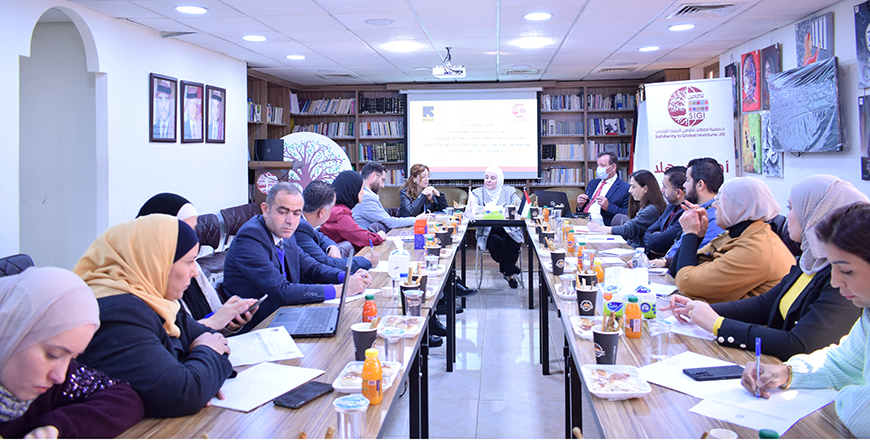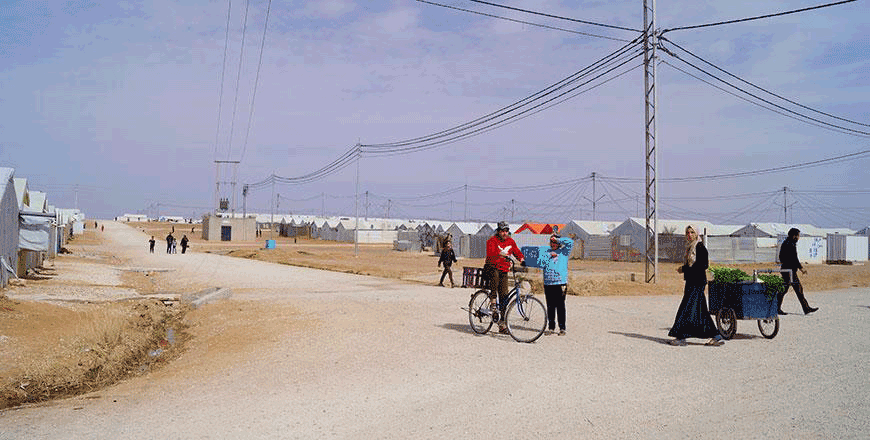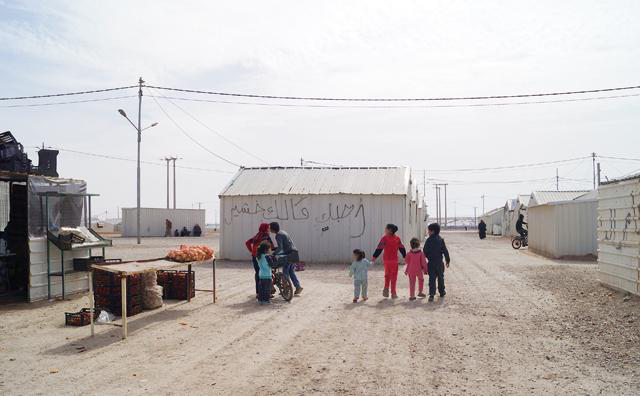You are here
SIGI hosts dialogue on Jordan’s response plan for Syria crisis, examines funding challenges
By Mays Ibrahim Mustafa - Dec 13,2023 - Last updated at Dec 13,2023

SIGI held a dialogue on Tuesday regarding Jordan’s Syria crisis response plan phase two with the participation of representatives from relevant sectors (Photo courtesy of SIGI)
AMMAN — The Solidarity Is Global Institute (SIGI) on Tuesday held a dialogue session on the “Jordan Response Plan for the Syria Crisis (JRP)/ Phase Two (2024-2026)” with the participation of representatives from relevant sectors, who discussed the focus areas of the plan, in addition to highlighting ongoing national efforts in hosting Syrian refugees in Jordan.
Muna Mutaman, a member of the administrative board at SIGI highlighted funding challenges faced by Jordan in its response to the needs of Syrian refugees.
She noted that figures issued by the Ministry of Planning and International Cooperation in Jordan show that the total funding provided by donors for the JRP during the January-August period of 2023 reached $373 million, which is only 16.4 per cent of the funding needs equal to $2.276 billion.
Mutaman also pointed out that the funding acquired for the JRP in 2022 only covered 33.4 per cent, or $760.3 million, of the total requirements.
She added that the Jordanian government has announced that the financing requirements for the second phase of the JRP (2024-2026) will reflect the needs of Syrian refugees in and outside refugee camps, host communities, and the Treasury.
The coordinator for the Syrian crisis at the UN refugee agency, UNHCR in Jordan, Layal Abu Darwish, explained the role of UNHCR in facilitating the preparation of the JRP lead by the Ministry of Planning and International Cooperation, through technical support, in addition to its advocacy efforts to ensure the availability of funds.
She added that the JRP is based on detailed studies and evaluations carried out to determine gaps in meeting the needs of Syrian refugees in Jordan, in addition to highlighting the impact of funding shortfalls.
Abu Darwish also noted that economic crises and ongoing wars in the region and around the world are impacting the volume of funding directed towards supporting the response to the needs of Syrian refugees in Jordan.
She added that leaders from across the globe will gather for the Global Refugee Forum 2023 next week, which is co-convened by five states, including Jordan.
This highlights the “significant” role played by the Kingdom in the response to the Syrian crisis, Abu Darwish said, stressing that UNHCR is committed to supporting Jordan in hosting Syrian refugees until conditions are safe to facilitate their return.
Ayesh Awamleh, a legal consultant and an expert in social protection, provided an overview of the second phase of the JRP, delving into its main focus areas.
Awamleh explained that this plan will be lead by the Ministry of Planning and International Cooperation, in cooperation with UNHCR, in addition to other UN agencies, civil society organisations and activists, among other relevant entities.
He added that the main components of the JRP are focused on the needs of refugees, the needs of host communities, and institutional capacity-building.
The sectors included in planning and financial monitoring processes include energy, education, social protection, water and sanitation, justice, shelter, public services, transport and the environment, he said.
Awamleh further stressed that this response plan does not only target Syrian refugees, but also host communities with social and economic needs that must be met.
Related Articles
AMMAN — The Ministry of Planning and International Cooperation on Tuesday said it will extend the Jordan Response Plan for the Syrian Crisis
AMMAN — Total funding provided by donor agencies to the Jordan Response Plan for the Syria Crisis (JRP) during the January-August period amo


















